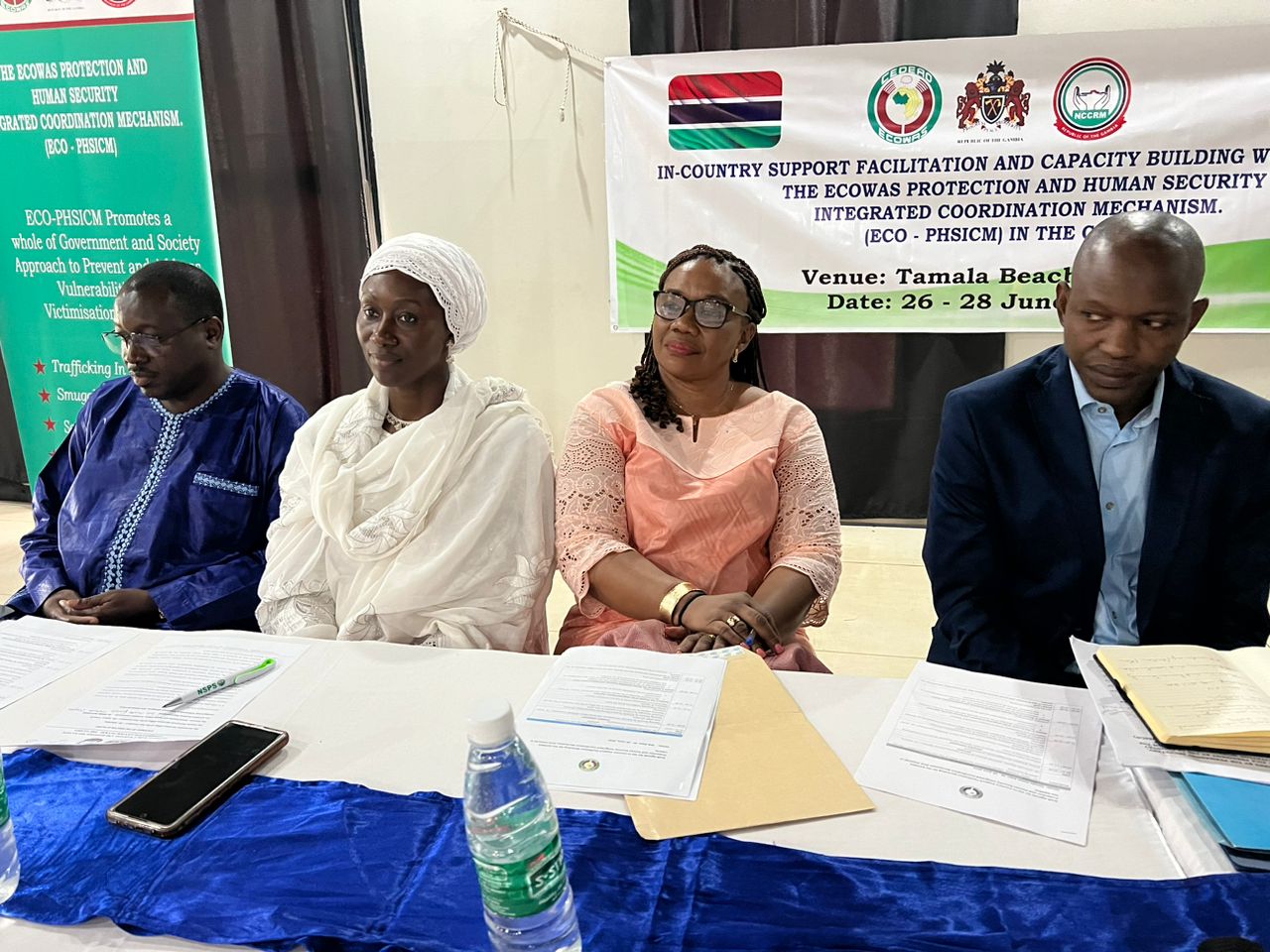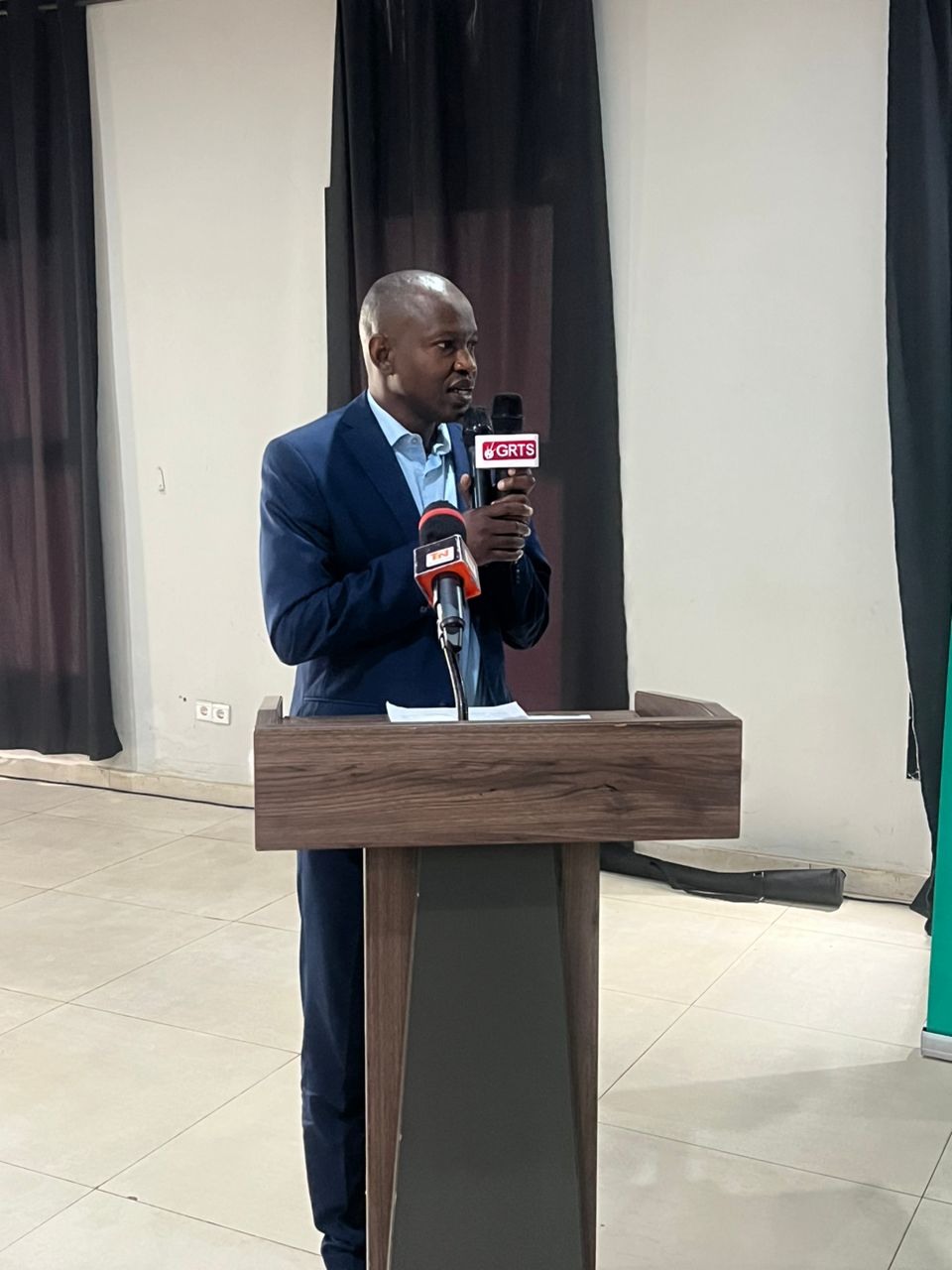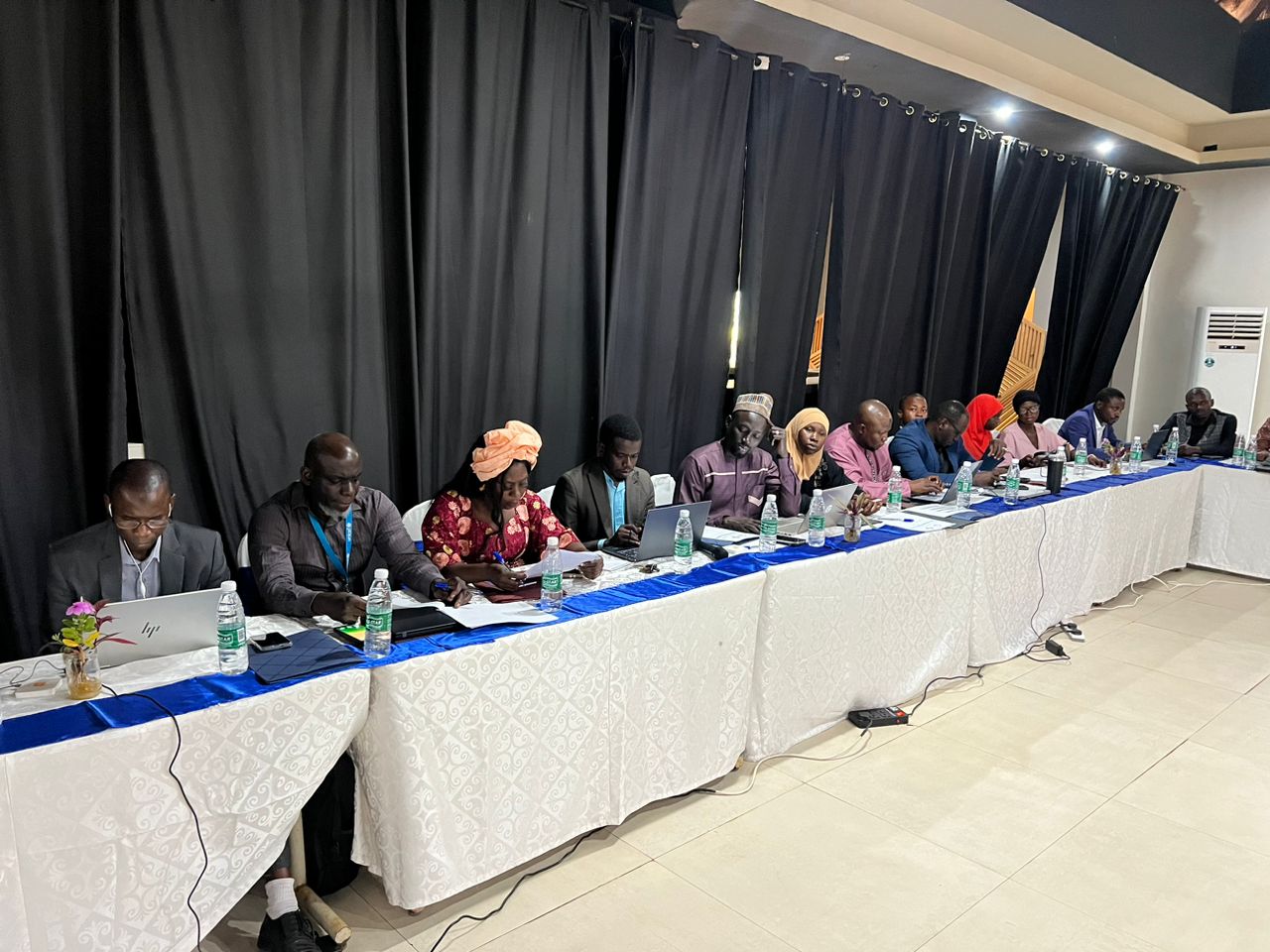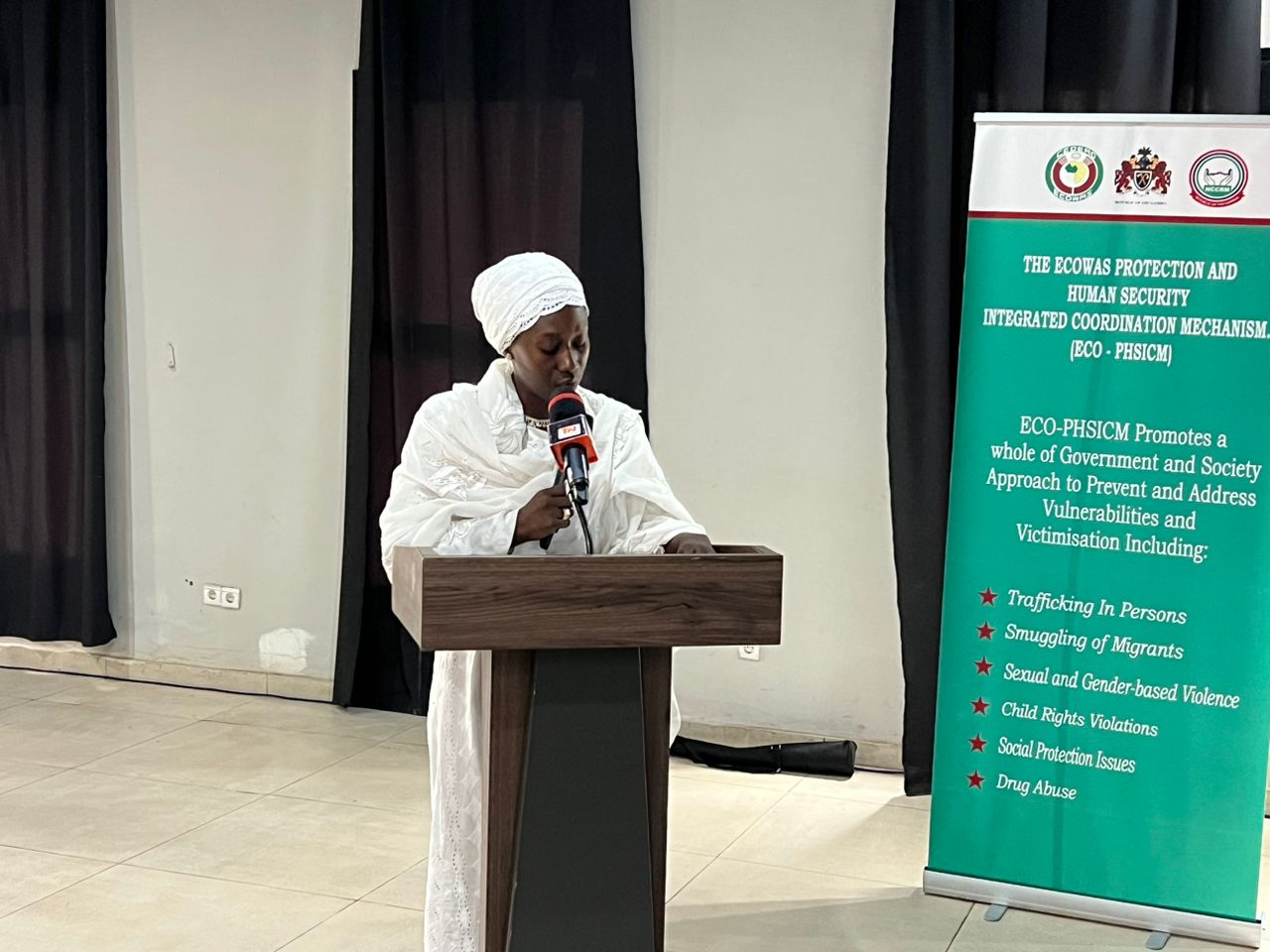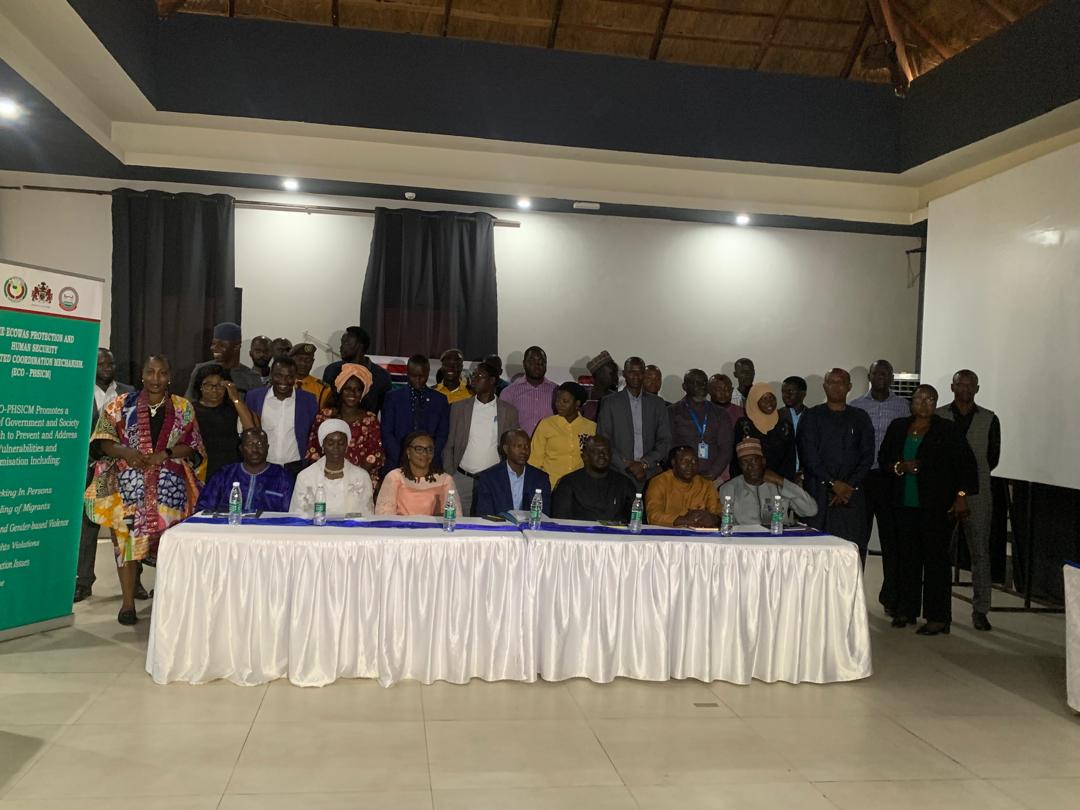ECOWAS organizes the In-Country Facilitation Support and Capacity Building Workshop for the ECOWAS Protection and Human Security Integrated Coordination Mechanisms (ECO-PHSICM) in The Gambia
01 Jul, 2024The ECOWAS Commission through the Directorate of Humanitarian and Social Affairs organized a 3-day capacity building workshop from 26th to 28th June 2024 for the ECOWAS Protection and Human Security Integrated Coordination Mechanisms (ECO-PHSICM) with the support of the National Early Warning and Response Mechanism Coordinating Centre (NCCRM), which is the coordinating Secretariat for the Mechanism (under the auspices of the Office of the Vice President of the Republic of The Gambia). The Workshop focused on reviewing progress recorded by the Gambia since the establishment of ECOPHSICM in 2021 and the adoption of an Implementation Roadmap.
The Workshop also had the objectives of reviewing the Roadmap (in view of new and emerging issues) and developing an Action Plan for its actualization for the period 2024 to 2026. The Mechanism was established to drive a whole of Government and Society approach in strengthening the ‘protection web’ for all persons within the territory of The Gambia.
In her welcome remarks, the Director of NCCRM in the Gambia, Madam Binta Singhateh appreciated the Office of the Vice President for its leadership role and the ECOWAS Commission for the initiative to establish ECOPHISCM and for organizing the in-country technical workshop. She highlighted the importance of the workshop given the range of protection and human security issues faced by The Gambia and the ECOWAS region at large; particularly in safeguarding the rights of vulnerable groups.
In delivering the remarks of the ECOWAS Director for Humanitarian and Social Affairs, Dr Sintiki Tarfa Ugbe, represented by Mr. Olatunde Olayemi, Programme Officer, Trafficking in Persons, he highlighted the importance of protection within the wider ambit of a human security approach as reflected in the Revised Treaty of ECOWAS and in the Protocol Relating to the Mechanism for Conflict Prevention, Management, Resolution, Peace-keeping and Security as well as the Protocol on Democracy and Good Governance. The pointed out the special attention given to the protection of the rights of women and children and other vulnerable groups in ECOWAS texts, from threats such as human trafficking, child prostitution, child labor, sexual and gender based violence amongst others. Mr. Olayemi highlighted the provision of a grant of 25,000 USD by the Management of ECOWAS to The Gambia for support to the NCCRM in its work in coordinating the ECOPHISM and informed the meeting of the close coordination between the Office of the Resident Representative of the President of the ECOWAS Commission and the NCCRM in the Office of the Vice President of The Gambia to ensure the application of the funds.
In her remarks, the ECOWAS Resident in The Gambia, Ambassador Miatta Lily French stated that human security is a key factor of the programs of ECOWAS as it strives to create a community for all. Accordingly, one of the themes of the 49th Anniversary Celebration of ECOWAS was ‘Enhancing Regional Unity, Peace and Security’. This further shows the significance ECOWAS attaches to human security. She called on the stakeholders to coherently coordinate and effectively utilise the funding support provided by ECOWAS to operationalize the ECO-PHSICM and implement identified actions, hoping that it will lead to improved human security in the region.
In his opening remarks, Permanent Sercretary in the Office of the Vice President, Mr Samba C. Mballo noted that the Integrated Protection and Human Security Program of the ECOWAS Commission is a vital component of the response efforts aimed at confronting prevailing risk, vulnerabilities and challenges facing the region, he added that the adoption of a country-specific Implementation roadmap in The Gambia is a significant milestone, reflecting the shared determination to implement tangible solutions.
Remarks were also received from the National Agency Against Trafficking in Persons (NAATIP) and Network against Gender Based Violence (NGBV) on behalf of the partners present in the workshop. The workshop featured sessions on a wide range of thematic issues that include baseline risk and preparedness assessment of protection and human security vulnerabilities in The Gambia, mapping of operational roles of key stakeholders that are part of ECO-PHISCM, action Planning for Implementation of ECOPHISCM in-country, practical strategies and procedures for community engagement, gender mainstreaming in ECO-PHISCM operations, referral systems: opportunities and procedures, human and material resource mobilization requirements and actions, ECOPHISCM projects monitoring and evaluation amongst others.
The workshop which was well attended ended with the adoption of a plan of action for the implementation of the Gambian road map on protection and human security.





